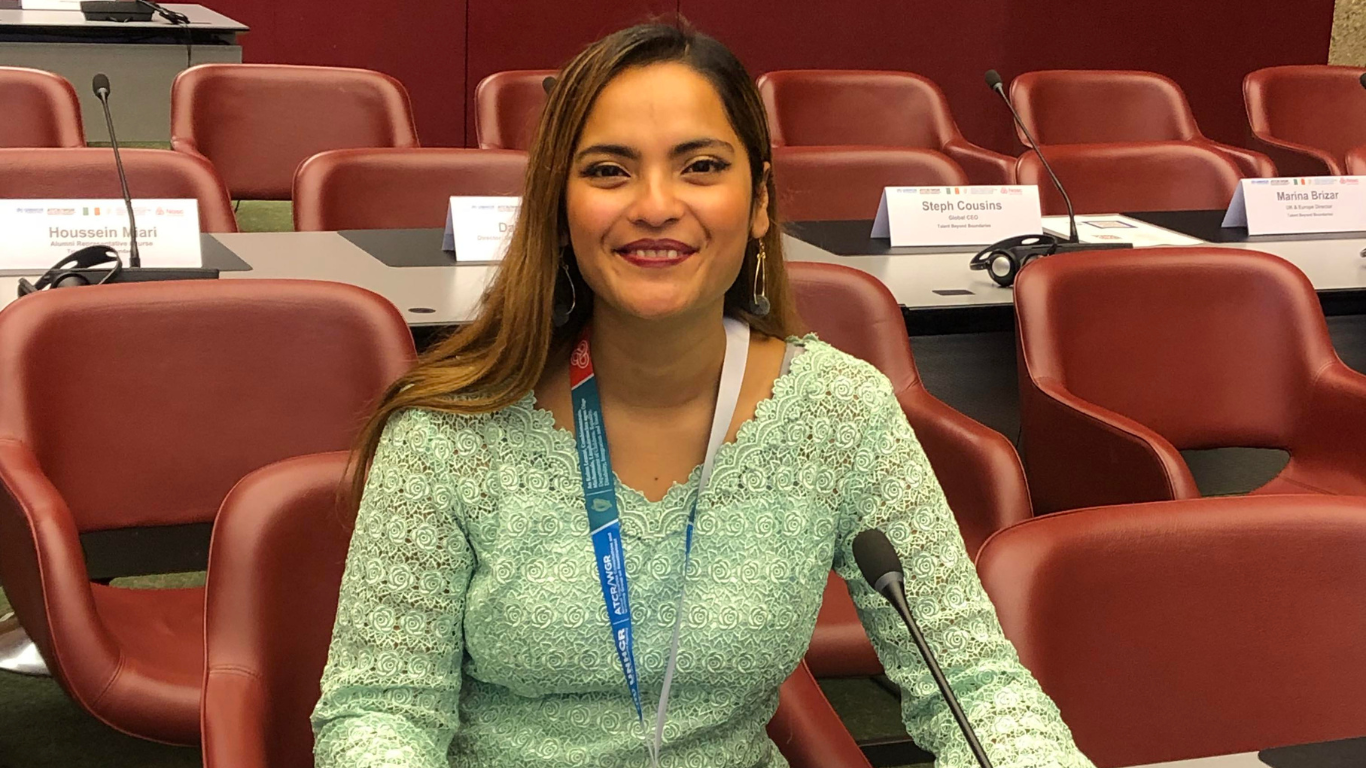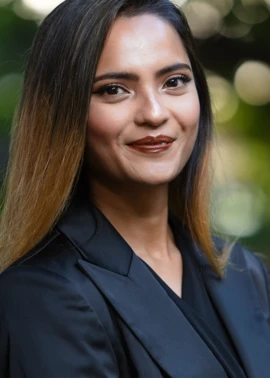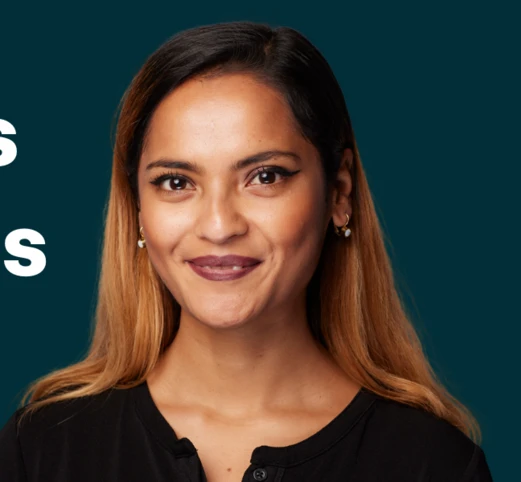Disinformation, misinformation, and hate speech are destroying the Rohingya culture, this is how you can help preserve it.
By Noor Azizah
We invite diverse voices to contribute to our blog. The opinions in this blog reflect the personal views of the author and not One Young World.
Being a proud Indigenous Rohingya woman is deeply intertwined with my identity and my journey. To me, it means honouring the rich culture, history, and resilience of my people despite the relentless adversity we face. My pride stems from my roots in Arakan, a land that holds both the pain of our past and the hope for our future.
A brief history of generations of genocide
The ongoing Rohingya genocide spans 82 years and has attempted to strip us of our land, our culture, and our human rights.
Although native to Myanmar, we are a Muslim Indigenous minority group from the Arakan/Rakhine State who have been subjected to decades of state repression.
In 1977 Myanmar, then Burma, passed a citizenship law that denied Rohingya people nationality, leaving us stateless, and forcing 200,000 Rohingya to flee to Bangladesh. In the refugee camps, thousands died due to inadequate resources and abhorrent living conditions, such as a lack of sanitation, water, and food.
By 1979, most of the Rohingya in Bangladesh had been repatriated to Burma where they faced compulsory labour, forced relocation, rape, summary executions, and torture. By 1989, over 250,000 Rohingya fled to Bangladesh where they were met, again, by poor living conditions in refugee camps.
In 1992, the governments of Bangladesh and Myanmar signed an agreement to repatriate refugees, and the refugee camps were closed to new arrivals. Over the following years, hundreds of thousands of Rohingya were sent back to Myanmar, and refugees attempting the journey were denied entry to Bangladesh.
In 2018, UN investigators called for the prosecution of Myanmar’s army chief and five other top military commanders for genocide, crimes against humanity, and war crimes, but in 2024, my people are still stateless, trapped, and denied their basic human rights.
In 2019, Gambia filed a landmark case against Myanmar in the International Court of Justice, asserting that Myanmar violated its obligations under the Genocide Convention by committing genocide against the Rohingya population. It was the first time the ICJ had received an application against another country that is not in the same continent, and by a country that is not directly affected by the actions of the other. Proceedings are still ongoing.
Displaced in Sabah
I was a baby when my parents, my four older siblings, and I fled Arakan due to increasing waves of violence against Rohingya. My parents initially hoped Sabah, Malaysia, would be a safe haven for us, but it was a harrowing experience, marked by uncertainty and fear.
I spent over eight years in Sabah, and during that time survival was the only option. I remember my siblings, particularly my eldest sister Yasmeen, sacrificing their childhoods to care for me and my brother. Yasmeen's love and efforts provided us with moments of joy amidst the hardship, like when she took us to night markets or dressed us up for a brief escape from our dire circumstances.
Yet, there were constant fears of being caught by the authorities and the anxiety of having to hide at a moment’s notice. These experiences, though painful, also reflect the extraordinary strength and solidarity within my family. I spent so much of my time hiding in the jungles of Sabah hiding from police, deprived of formal education, deprived of health care. Not knowing what tomorrow was going to be.
Misinformation and hate speech spreading hate for Rohingya
Hate speech has been spread in Burma/Myanmar since 1942 through independent publications, such as newspapers, and, in more recent years, state-sanctioned social media channels that convey an official message of discrimination against the Rohingya. Since this has been absorbed, violence towards Rohingya is seen as normal. The Burmese Junta spread hateful and discriminatory language, comparing us to animals and migrants, not Indigenous to the nation, calling us the word “Kala”, which means the colour black, equivalent to the “N” word, a derogatory and anti-muslim term calling us too black.
This misinformation has now made its way to Southeast Asia, where displaced Rohingya people are trying to seek refuge and build a life. They perpetuate harmful stereotypes, dehumanise, and contribute to the widespread stigma and violence we face. These toxic narratives hinder efforts to gain international support and complicate the humanitarian response.
In Aceh, for example, a boat carrying a Rohingya mother was turned away by angry villagers who saw the passengers as a threat to local resources. This led to her baby dying of starvation and she was forced to bury her child by throwing the body into the ocean.
In Malaysia, a Rohingya mother was set on fire due to increasing animosity towards Rohingya. Anti-Rohingya groups are committing this crime and directing their economic frustration towards Rohingya refugees.
The UN has stated that this discrimination is intentional. Rohingya people are being labelled as "too black, animal-like, thorns," highlighting the colourism and racism they face in the region. There is a stark double standard, as Malaysia and Indonesia have been vocal about the situation in Gaza, yet the hate speech against Rohingya has effectively led to physical violence.
A glimmer of hope, not to be confused with freedom
In 2003, my family and I were granted asylum in Australia. We felt safe and recognised as individuals with rights for the first time. The documentation and legal status meant that I was no longer just a stateless child but a person with a future.
However, the feeling of complete freedom is still elusive as I carry the weight of our ongoing struggle for justice. The security in Australia provided a foundation upon which I could build my life and advocate for my people, but true freedom will only come when every Rohingya is safe and secure.
I took advantage of education in Australia which many Rohingya are deprived of. I went to the University of Sydney and completed my Bachelor of Education, specialising in English as a second language, and studied for my Masters in Peace and Conflict Studies, where much of my work was on the ongoing Rohingya crisis, focusing specifically on gendered perspectives.

The Rohingya Maìyafuìnor Collaborative Network
In 2023, I co-founded The Rohingya Maìyafuìnor Collaborative Network alongside four incredible Rohingya women. Together, we address the unique challenges Rohingya women face and amplify our voices in the global discourse on human rights. Today we have seven Rohingya women in our team.
Our network is dedicated to tackling issues like sexual and gender-based violence, education disparities, and the need for trans-local solidarity. By creating a platform that is both women-led and refugee-led, we aim to empower our community and advocate for meaningful change that reflects our experiences and aspirations.
At the Rohingya Maìyafuìnor Collaborative Network, we focus on various initiatives to support Rohingya women and advocate for their rights. We have organised educational programmes and workshops to empower women with knowledge and skills. We work on raising awareness about sexual and gender-based violence and provide support to rape survivors, such as birthing help, psychosocial support, and food.
We are not a humanitarian organisation, but we’ve managed to fundraise $50,000 through crowdfunding in the last few months to provide food, healthcare, safe shelters, and milk for Rohingya women and children refugees in Aceh and Bangladesh.
We are providing psychosocial support to 80 unaccompanied Rohingya children in Aceh who have witnessed their parents drown or whose parents have been arrested in Malaysia and Indonesia.
We are working with forensics in Guatemala, looking at mass graves of Rohingya in the region, providing Rohingya families with workshop sessions on DNA work, and missing families, and allowing them to have some hope to learn about missing loved ones.
Preserving Rohingya Indigenous culture
By advocating for the rights and recognition of the Rohingya people, we also create a supportive environment where we protect and promote our culture to preserve our identity from the ongoing genocide.
One of our recent projects involved an art competition in Aceh that aimed to foster unity between Rohingya refugees and host communities. Due to the increase in hate speech manifesting into physical violence, anti-Rohingya groups were going to the refugees screaming and yelling at them to go home. These activities not only offer practical support but also help build solidarity and bridge gaps between different groups.
Our work helps preserve Rohingya Indigenous culture by promoting and celebrating our traditions, stories, and heritage. Through education, cultural programmes, and community events, we ensure that our cultural practices are passed down to future generations.
Tangible steps can we all take to support the Rohingya people
I have dedicated my life to supporting and raising the voices of my people, but we need your help too.
To support the Rohingya people and advocate for their rights you can:
- start by educating yourself about our situation and spreading awareness. Websites such as Ek Khaale and United States Holocaust Museum are a good place to start
- support refugee-led organisations, like the Rohingya Maìyafuìnor Collaborative Network, that work directly with Rohingya communities. The most impactful change occurs when initiatives are led by the community themselves.
- share the Rohingya Maìyafuìnor Collaborative Network message and raise awareness through social media or community events to amplify our efforts and encourage broader support
- donate to the Rohingya Maìyafuìnor Collaborative Network or similar organisations that are working on the ground
- volunteer your time, skills, or resources to organisations making an impact
- challenge hate speech and misinformation by promoting accurate information, supporting initiatives that educate and raise awareness, and fostering dialogue that bridges gaps between communities
- foster empathy and solidarity and encourage others to do the same, ultimately creating a more supportive environment for Rohingya refugees.
Stay updated with my work by connecting with me on Instagram, LinkedIn, and Facebook
Author

